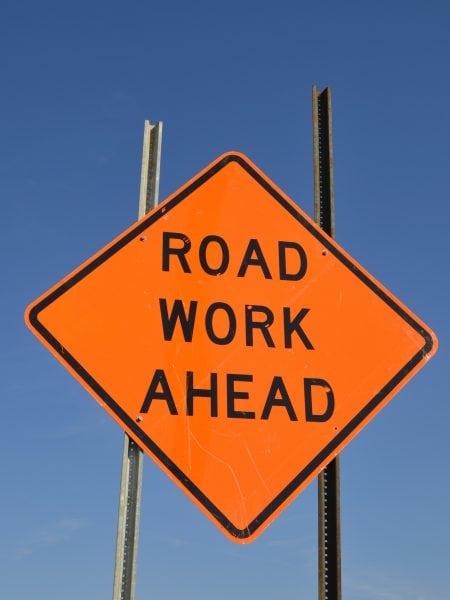Faced by the Eminent Domain Power of IDOT or the Tollway?

When IDOT or the Tollway threatens to exercise its eminent domain power to take your property for a road or transportation construction project, it is critical to consult with an experienced eminent domain and condemnation attorney in Illinois who can help ensure your rights are protected.
Most people facing condemnation of their property due to an IDOT or Tollway road expansion project feel alone and in unfamiliar territory. At the outset, owners are hopeful that IDOT or the Tollway will be fair in paying proper compensation for their property taken and damaged by the project. They are also optimistic that IDOT or the Tollway will negotiate regarding the compensation due. Owners however are routinely frustrated and disheartened by IDOT’s or the Tollway’s offers, by IDOT’s or the Tollway’s rejections of reasonable settlement offers, and by their inflexible negotiating process. In fact, owners are routinely forced to negotiate against themselves, as IDOT and the Tollway rarely present a counteroffer.
Understanding IDOT’s or the Tollway’s Process When It Takes Your Property
IDOT’s and the Tollway’s condemnation process, similar to any other condemnor, starts years before property owners are officially notified, when land surveying and initial phase-one engineering and planning are performed. During the second phase of the road project, they refine their engineering and commence land acquisition. This is when the condemnor coordinates contacting affected property owners, performing appraisals, and extending offers of compensation. If the owner does not accept the government’s offer, then the government must file suit to acquire the land. The third phase is the active construction of the road project. The above is the general process for all road construction projects, regardless of the condemning entity.
Prior to receiving an official notice, most owners are only vaguely aware of the project, having received any information from brief news articles or even rumors. The offer supplied by IDOT’s or the Tollway’s negotiator will likely contain a basic brochure regarding the land acquisition process, an appraiser’s report, a form deed to sell your property, and an offer letter. It unfortunately does not contain information about the project, construction plans, a timeline, and other critical information. It also does not tell you that their appraisals are not mathematic analyses but their appraiser’s subjective opinion who they use time and time again.

Here are some important things to understand about this stage of the process:
- IDOT/Tollway may suggest you obtain an appraisal — DON’T. An appraisal will be necessary at a later stage in the process and should only be completed by an appraiser who is knowledgeable and very familiar with IDOT’s and the Tollway’s condemnation process. Obtaining the appraisal now could strengthen IDOT’s or the Tollway’s position, and will likely cause you to incur unnecessary costs.
- IDOT’s/Tollway’s purchase offers routinely undervalue the amount to which you are entitled. A thorough second appraisal often reveals omissions of facts or biased conclusions in the government’s offer, which may entitle you to additional compensation. Under the law, you are entitled to be compensated for the value of the property taken and for the damage to your remaining property, including relocation costs when applicable. Illinois condemnation attorney Bryan P. Lynch is knowledgeable about identifying when IDOT’s or the Tollway’s offer omits compensation for these items, and he is experienced in challenging the offer.
- IDOT or the Tollway will provide a 60-Day Notice. After supplying property owners with a written purchase offer, if an agreement is not reached, IDOT/Tollway will send owners a written 60-day notice. The 60-Day Notice is a legal requirement that must be sent to an owner before the State can proceed to court and file a condemnation lawsuit. Owners should not view the expiration of the 60-day period as a problematic issue or triggering the loss of any of their rights. Rather, it is a legal obligation that the State must satisfy. IDOT or the Tollway is not obligated to file its lawsuit after the 60th day has passed, and often it does not file suit for weeks or even months after the 60-day expiration.
- IDOT or the Tollway will use the Quick-Take hearing to their advantage. You must prepare in order to use the Quick-Take hearing to your advantage. At some point after the 60-day notice period, IDOT/Tollway will file its complaint to condemn and will very likely also file its motion to set a date for a quick-take hearing. No two properties or condemnation projects are the same, but generally speaking, proper preparation for the quick-take hearing can take a month or more. It is critical that business and property owners are prepared for the quick-take hearing and, since the hearing date is often set shortly after the complaint is filed (hence the term, ‘quick-take’), time is absolutely of the essence. At the quick-take hearing, IDOT/Tollway will present the court with appraisers, experts, and evidence to argue how much it believes it should pay you. It is absolutely essential that you are prepared in advance of the hearing and that you are represented at the hearing. As an experienced eminent domain and condemnation attorney in Illinois, Bryan P. Lynch understands the level of preparation that is necessary for successful results at these hearings against IDOT and the Tollway. He presents expert testimony by an independent condemnation appraiser and sometimes other experts, such as a civil engineer. He presents compelling evidence to demonstrate and prove the true value of your property, the damage (reduction) to your property’s value, and the full compensation to which you are entitled and deserve.
- At the conclusion of the Quick-Take hearing, the judge will set the preliminary just compensation amount. At the conclusion of the quick-take hearing, the judge will enter an order stating the amount of compensation that IDOT or the Tollway must first pay before it can take and use the property. The amount decided by the judge is called the preliminary just compensation and importantly, as the name suggests, this is not the final amount and does not conclude the case. Only after IDOT or the Tollway actually pay the preliminary compensation can it actually take the property.
- The case concludes with the entry of a final judgment order which includes the final just compensation amount. After the hearing is held and the amount is paid, the parties may agree that the amount ordered by the judge is indeed fair and should be final, in which case, a final agreement is approved by the parties, and the court enters a final order. However, either party may object to the amount ordered by the judge as being too low or too high and proceed with discovery and then to a jury trial. Alternatively, the parties may negotiate a settlement based upon an amount higher or lower than the amount ordered by the judge. Owners should know that jury trials are very rare in condemnation matters, and most IDOT and Tollway property acquisition cases are resolved prior to or shortly after the quick-take hearing.

Prepare Now for the Quick-Take and Call Us Today
If IDOT or the Tollway is widening, adding, or realigning the road abutting your property or home, understand and protect your rights, and fight to secure the compensation you deserve.
Contact us for a free initial consultation or call 312-573-2727.
